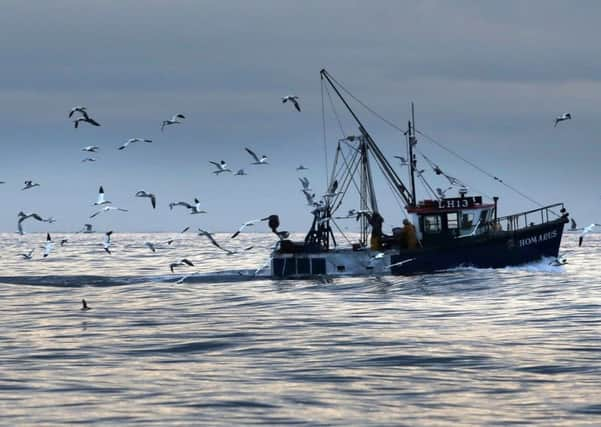Melanie Onn: Why no deal Brexit would hurt our fishermen - and make chip shop prices skyrocket


However, the fish that feeds those factories and smoking houses no longer lands at the docks in Grimsby, and often not even in the UK. Instead, the fish processed in my constituency arrives at our factories from across northern Europe.
The cod and haddock used by companies such as Young’s and Seachill and enjoyed by many in the fish and chip shops up and down the country are caught in the likes of Norway and Iceland.
Advertisement
Hide AdAdvertisement
Hide AdThey are then transferred across Europe, usually by lorry, moved on to a container ship and then put back on a lorry, eventually arriving at their destination. Those companies really worry about the effect of Brexit on their sector.


It is right that we talk about the sector as a whole, including processing. The Government document, Seafood 2040: A strategic framework for England, looks at the whole sector, from catching the fish all the way through to its ending up on people’s plates.
The strategy covers the industry in its entirety, which is why it is relevant for me to raise these issues. Companies such as Young’s and Seachill rely on seamless supply routes to ensure that the fish that they use arrives in as fresh a state as possible.
Any delay in the transport of what is a highly perishable good will have a massive impact on both the quantity of spoiled fish and the quality of the end product in our supermarkets.
Advertisement
Hide AdAdvertisement
Hide AdGrimsby’s fish processing sector needs assurances that, come what may, it can continue to enjoy its current seamless supply route. However, industry leaders in the area currently express deep concern about the lack of clarity over how they expect the sector to operate in what could be a matter of weeks.
Currently, health certificates for fish imports from inside the EU or EFTA (European Free Trade Association) are only required for species that carry, or are at risk from, controlled diseases, but they are needed for all fish from outside the EU.
Fish from EU and EFTA nations do not need to go through border checks when entering the UK. Imposing requirements on markets such as Norway and Iceland to provide health certificates for all the fish they export to us would lead to increased border checks on fish from those countries and could mean damaging delays to the delivery of fresh fish.
If we leave the EU without a deal, all fish exported to the EU will require export health certificates, but companies in my constituency have raised concerns that local environmental health officers simply do not have the resources to facilitate that significant increase in their workload.
Advertisement
Hide AdAdvertisement
Hide AdIf there are extra certificates, checks and tariffs, those will all be checked and carried out at our ports, and there are concerns among Grimsby companies that even with a deal, ports will experience a bottleneck post-Brexit. We have heard about the plans for lorry parks in Dover, but there are also plans around the country for extra capacity to deal with delays in port areas, and the position is the same in north-east Lincolnshire.
Currently, fish arriving at ports here have been checked and certified in Iceland before being shipped to the UK. Fish arriving here can be seamlessly transferred because of the long-standing relationship between Grimsby and Iceland.
There is enormous trust as a result of that relationship, which has existed for decades. It works, and nobody wants that to change. It means that the fish is moved seamlessly. There is no damage to the product. It comes in, and there is no risk of any kind of perishing of the product when it comes through, which of course would devalue it on the open market.
If the UK imposes its own customs checks on fish once we leave the EU, that would severely impact the quality and quantity of usable fish that ends up in the UK market.
Advertisement
Hide AdAdvertisement
Hide AdThe concerns are clearly not felt by the processing sector alone. According to the UK Seafood Industry Alliance, we export most of what we catch and we import most of what we eat, with 90 per cent of the cod consumed in the UK coming from outside our borders, and species such as nephrops, which are quite unfamiliar to UK dinner tables, being among our most valuable seafood exports.
If we leave without reciprocal and favourable trade arrangements with major importers and exporters, we could easily end up in a situation in which fishermen struggle to make vital profits on export species that are valuable in foreign markets, while we see the cod and haddock in our chippies and supermarkets skyrocket in price as tariffs are slapped on our imports.
Melanie Onn is the Labour MP for Great Grimsby. She spoke in a Parliamentary debate on fishing – this is an edited version.